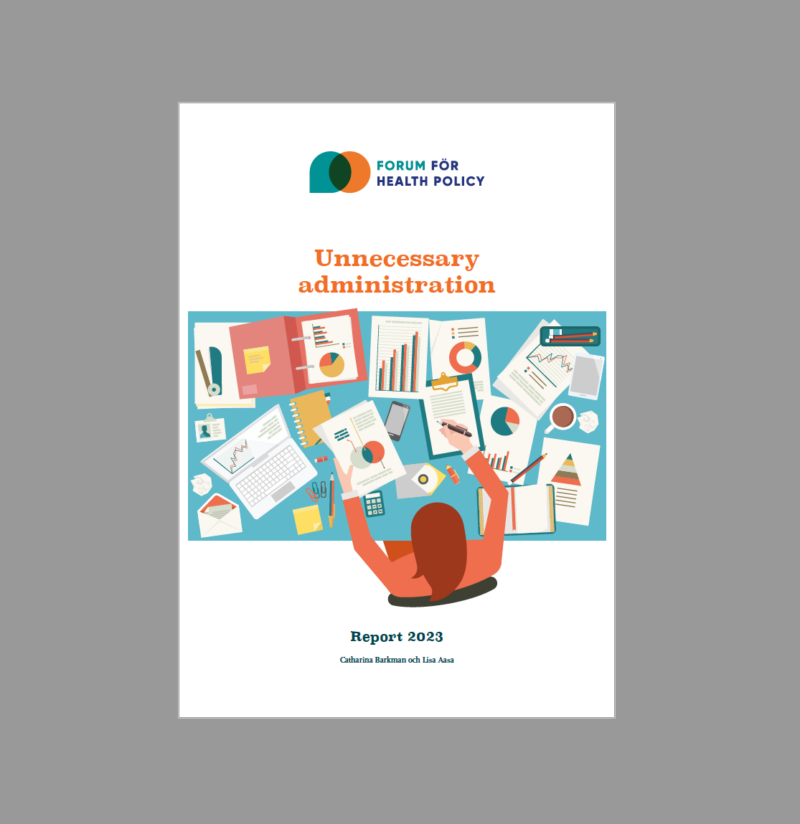The report’s recommendations in brief:
● Automate where possible – low-hanging fruits.
● National and uniformly designed documentation and reporting requirements.
● Eliminate double and triple registrations.
● Remote monitoring provides patient independence and saves time and resources.
● Let patients own their own data.
● Implement intelligent referral systems.
● Time needed to treat.
● Scout, pilot, scale – replicate others’ innovations.
● Task shifting.
Good leadership is crucial for achieving simpler and smoother administration at all different levels. We believe that both the regions and the state have good opportunities to address the issues related to unnecessary administration.
● The regions should mandate that numerous support functions that already exist today to prioritize the simplification of administration as their main task, with clear quantitative goals. Throughout the organization, utilize and communicate the so-called sunset principle, where every proposal for new administrative requirements or detailed routines should be accompanied by suggestions that result in overall administrative savings.
● Strengthen the proximate leadership. With a well-functioning proximate leadership, the daily improvement work can thrive, including identifying time thieves in the daily lives of employees and patients. Time thieves that cannot be addressed locally but need to be communicated upwards must be taken seriously by the management.
● One of the existing Swedish government agencies should have the task (through reprioritization, not additional resources) of determining interpretations of laws and regulations, introducing digital standards, and developing common and uniform documentation and monitoring requirements applicable to all regions. It should also be part of their mandate to continually search for best practices in the world concerning efficient tools and processes and communicate that knowledge to the regions.
We do not claim to provide a comprehensive picture in this report. There are certainly many organizations that have well-functioning administrative processes. Suggestions and concrete examples of unnecessary administration are subject to change. Development is happening rapidly such as new techniques, digitalization, AI supportive systems. Some proposals in the report may have already been implemented.
Our hope is that the report creates discussions and dialogues on how administrative burdens can be reduced for the benefit of healthcare staff, patients and taxpayers.
Read the full english summary here >>>
[/et_pb_text][/et_pb_column][/et_pb_row][/et_pb_section]


